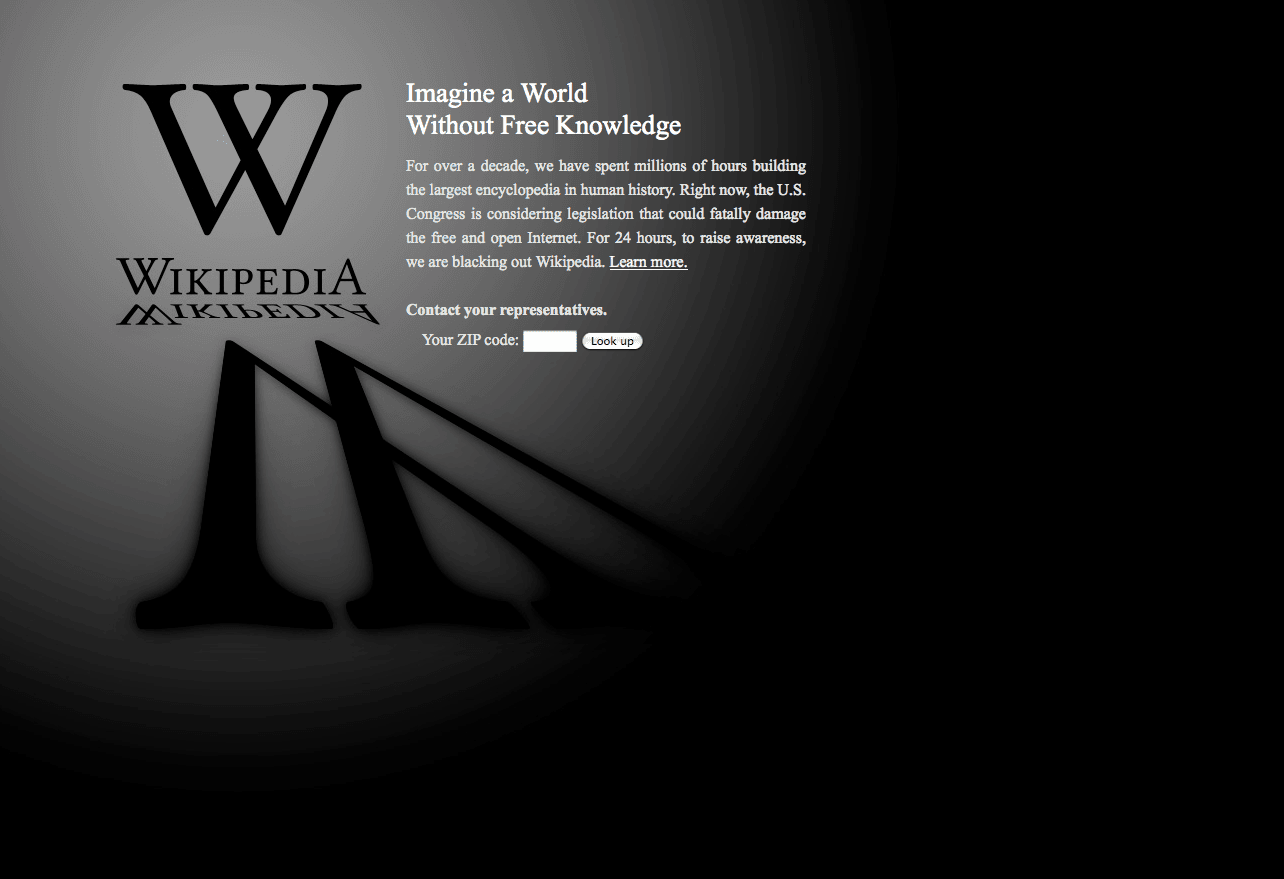White House pushes back against CISPA
Wikipedia protested anti-piracy bills by shutting down on January 18, 2012.
The White House has come out and criticized CISPA, a new and controversial cyber security bill, in a statement released on Tuesday after administration officials were briefed by lawmakers on cyber-attacks and the threat hackers pose to data security.
In an alternative bill backed by the White House, the department of Homeland Security would have the power to enforce cyber security standards for critical systems. House Republicans and other supporters of CISPA said, however, that such legislation would impose unnecessary regulations on businesses.
National Security Council Spokeswoman Caitlin Hayden also brought attention to the lack of privacy protections in the CISPA law as it stands now, arguing that all cyber security legislation should include strong privacy protections for the personal information of private citizens. The White House also stated that CISPA would need strict regulatory standards for critical infrastructure systems like the electrical grid and water supplies.
More from GlobalPost: CISPA: What's so bad about it?
"The nation’s critical infrastructure cyber vulnerabilities will not be addressed by information sharing alone," Hayden said.
"Also, while information sharing legislation is an essential component of comprehensive legislation to address critical infrastructure risks, information sharing provisions must include robust safeguards to preserve the privacy and civil liberties of our citizens. Legislation without new authorities to address our nation’s critical infrastructure vulnerabilities, or legislation that would sacrifice the privacy of our citizens in the name of security, will not meet our nation's urgent needs," she said, without explicitly mentioning CISPA.
The Electronic Frontiers Foundation and the American Civil Liberties Union have both come out against CISPA, arguing that the bill would encourage private companies to hand over their customers’ private data to the US government. Large portions of the internet have also begun protesting against CISPA, using similar tactics that were employed against SOPA earlier this year.
Rep. Mike Rogers, CISPA’s sponsor, denies that CISPA is simply a new SOPA. Rogers argues that the new legislation would protect American networks from cyber-attacks and not enforce copyright laws.
“Everyday US businesses are targeted by nation-state actors like China for cyber exploitation and theft,” Rogers said in a statement last month. “The broad base of support for this bill shows that Congress recognizes the urgent need to help our private sector better defend itself from these insidious attacks."
More from GlobalPost: CISPA: The internet is acting like an interest group
With the debate continuing in Washington and protests taking place around the internet, cyber security experts are sometimes dumbfounded with the level of bureaucracy needed to simply inform companies of cyber threats.
“I can see yet another quagmire of bureaucracy building up around those requirements. If a federal agency knows that a particular US company is being targeted they should just tell them," said Richard Stiennon, chief research analyst at IT-Harvest, a risk analysis company focused on technology, in an interview earlier this month.
Every day, reporters and producers at The World are hard at work bringing you human-centered news from across the globe. But we can’t do it without you. We need your support to ensure we can continue this work for another year.
Make a gift today, and you’ll help us unlock a matching gift of $67,000!
